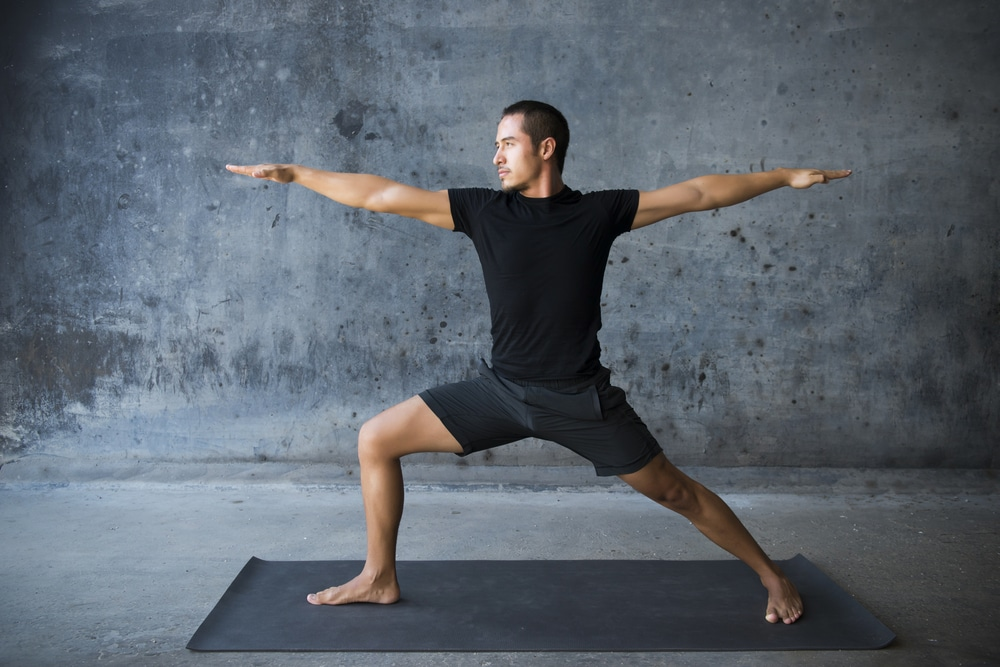While yoga can be a great way to unwind, it can also be a wonderful method to improve your mental health. A few studies have shown that yoga can help with stress relief and anxiety, as well as improve men’s emotional health. You will find eight benefits of yoga for men in the following article.
Your Body Is Strengthened
Yoga is a great way to strengthen your body and can also have a positive impact on your emotional well-being. Yoga can help you relax, improve your mental ability, increase flexibility, and strengthen your sense of self. Cenforce 200 increases blood flow to the penile region of the body. This aids men in achieving and maintaining erection.
While men tend to focus on strength training, yoga can help them improve their flexibility and range of movement. Yoga has many benefits beyond actual wealth. It can also help you to achieve profound, mental, and sexual success.
Yoga can boost your energy and strengthen your heart. Yoga can bring out the benefits of coriander. You can easily do this yoga at your home. You can also consult a professional if you are uncomfortable doing it alone. This will help you choose the right exercise for you.
Research has shown that practicing yoga can reduce the effects of sadness, increase perseverance and improve your overall mental state. One study also found that yoga can improve your pneumonic ability.
Yoga can help men who feel their sexual relationships are stagnant or not fulfilling their potential. They can also use it to increase their ability to adapt to pressure and build trust in their abilities.
Although yoga is often considered a health and wellness option that only women should use, it can be beneficial for anyone of any age. The stances can also improve lymphatic flow, which increases your susceptibility.
Increases The Body’s Ability Respond To Stress
Yoga can help you increase your body’s ability to handle pressure. This training involves contemplation, extending activities, and breathing strategies. This combination of strategies can improve adaptability, well-being, and mindset.
Yoga can also help you deal with the side effects such as uneasiness or sorrow. Research has shown that yoga increases the amount of feel-great synthetic substances within your cerebrum. These include endorphins and dopamine. These substances are important for feelings of bliss and unwinding.
Another review shows how yogic breathing can reduce the number of trouble signals your body receives from upsetting situations. This is a normal response to stretching, but it can cause problems if it’s not taken care of properly.
It can help you maintain a healthy body by improving your body’s ability to handle pressure. You can find a variety of yoga poses that target specific muscles, ligaments, or joints. These presents can improve your flexibility, adaptability, balance, and range of motion.
Improves Your Flexibility
If you are looking for ways to improve your adaptability, there are many benefits. It not only protects you from injury, but it also supports your mental health. Exercising can reduce pressure, increase blood flow, and increase movement. However, it is essential to make it happen accurately.
It is recommended that you stretch each muscle group no less than twice daily to achieve this. Yoga can also be incorporated into your daily routine. It is important to remember that slowing down is the best way to achieve this.
To get the best results, ensure you stretch before you start working. This will help your muscles prepare for the movement.
It is as easy as warming up and doing some light running. You can then do static extending. For around 15-60 seconds, stand firm on the ground.
Froth rolling is another helpful technique. Froth rolling can be described as self-myofascial drainage. It is similar to a back rub. This will help you relax your muscles and eliminate any byproducts.
Heart Disease Risk Factors Are Reduced
Yoga has been shown to reduce blood pressure, decrease stroke risk, and increase body weight. Scientists reviewed the effects of a 1-year yoga practice program on cardiovascular risk factors.
Yoga is a brain-body practice that involves breathing, act control, reflection, and meditation. A large number of people practice it all around the world. It has been shown to reduce pressure, lower body weight, and increase mental well-being.
A new study examined the effects of a year-long yoga practice on men’s cardiovascular risk factors. Scientists compared the progression of 60 adults with metabolic conditions to a benchmark group.
The subjects were divided into two groups: the benchmark group, and the yoga meditation bunch. A battery of surveys was completed by the two groups. Each gathering was assessed for NCEP-characterized Meetings with demonstrative boundaries. These included pulse, abdomen perimeter, fat oils, high-thickness cholesterol, fasting glucose and HDL-C.
The yoga group showed significant decreases in both the diastolic and systolic pulses, which was not the case for the benchmark group. The yoga group also saw a significant increase in serum HDL and a decrease in the TC/HDL ratio. They also saw a decline in BMI and a reduction in the ratio of muscle to fat during yoga preparation.
Despite the negative outcomes, it is expected that more studies will be conducted to better understand the impact of yoga on essential CVD prevention. This study shows the possibility of yoga meditation in moderately-aged adults.
Specialists believed that one-year yoga meditation had been successful in reducing the risk of developing coronary disease. Although the participants in both gatherings reported positive changes, the experts were not satisfied with the results. They also did not know if the impact was due to subject consistency or the measure of yoga.






